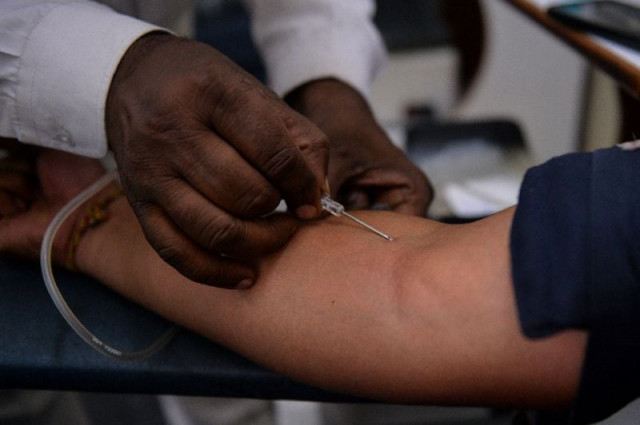UK blood contamination scandal victims can sue: court
Thousands of people with haemophilia contracted hepatitis C, HIV after receiving transfusions of blood

Victims of a contaminated blood scandal in Britain which left at least 2,400 people dead, and their families will be allowed to seek damages following a High Court ruling on Tuesday.
A High Court official said it was 'appropriate' to issue immediately a group litigation order allowing a potential 500 claimants together to seek compensation. Lawyers acting for the health ministry had argued that the application to the court was 'premature'.
Thousands of people with haemophilia contracted hepatitis C and HIV after receiving transfusions of blood, mainly from the United States, through the state National Health Service [NHS] in the 1970s, 1980s and 1990s.
The ruling follows an announcement by the government in July that Britain will launch a new inquiry into the scandal, after pressure from lawmakers to look into possible criminal activity.
Chris Smith, 39, was among those welcoming Tuesday's court order. His father Ray died in 1986 aged 32, a victim of contaminated blood, when Smith was eight years old.
Smith accused the government of acting with deceit and trying to "bury" the truth behind "the biggest disaster of the NHS" and trying to get away with "very, very small" compensation schemes. Smith said what had happened to his father had been "a dirty secret". "This is more about truth than anything else -- my dad is in his grave, for what?" he said.
Following the announcement of the inquiry in July, Prime Minister Theresa May's spokesperson said: "It is a tragedy that has caused immeasurable hardship and pain for all those affected and a full inquiry to establish the truth of what happened is the right course of action to take."
Due to a shortage of blood products in Britain, the NHS bought much of its stock from US suppliers whose donors, including prisoners and other groups at high risk of infection, had been paid for their blood.
A previous inquiry that concluded in 2009 found that ministers should have acted sooner to try to make British blood supplies self-sufficient so it did not have to rely on imports. It also called for compensation for those affected.





1644560129-0/download-(20)1644560129-0-208x130.webp)












COMMENTS
Comments are moderated and generally will be posted if they are on-topic and not abusive.
For more information, please see our Comments FAQ